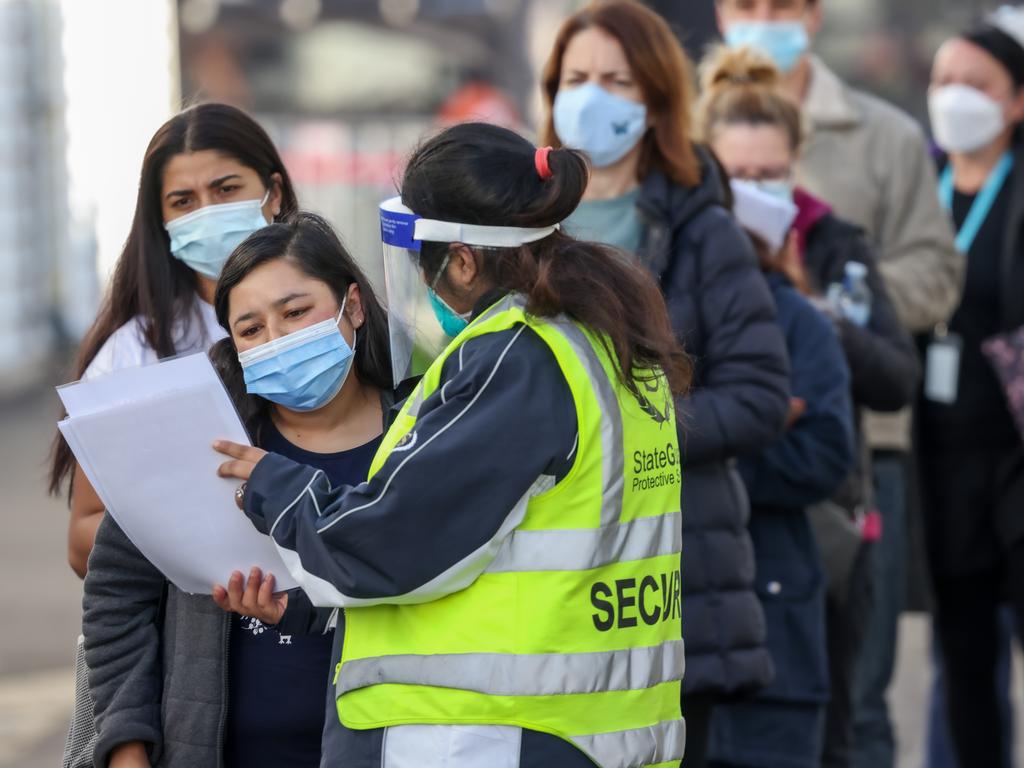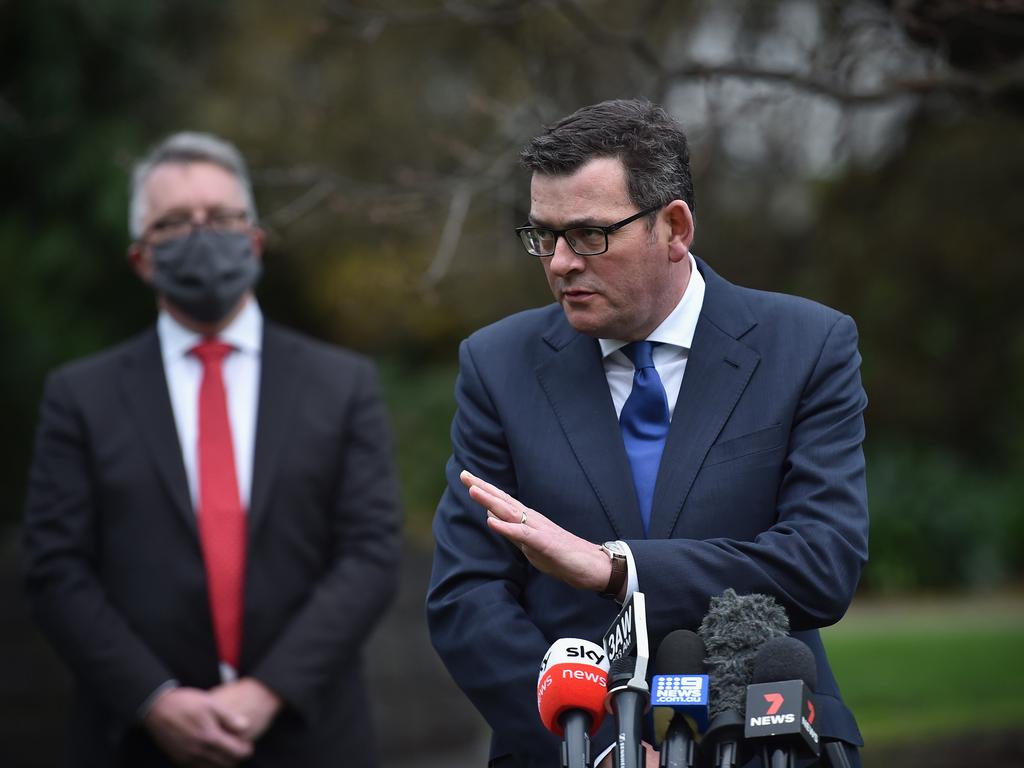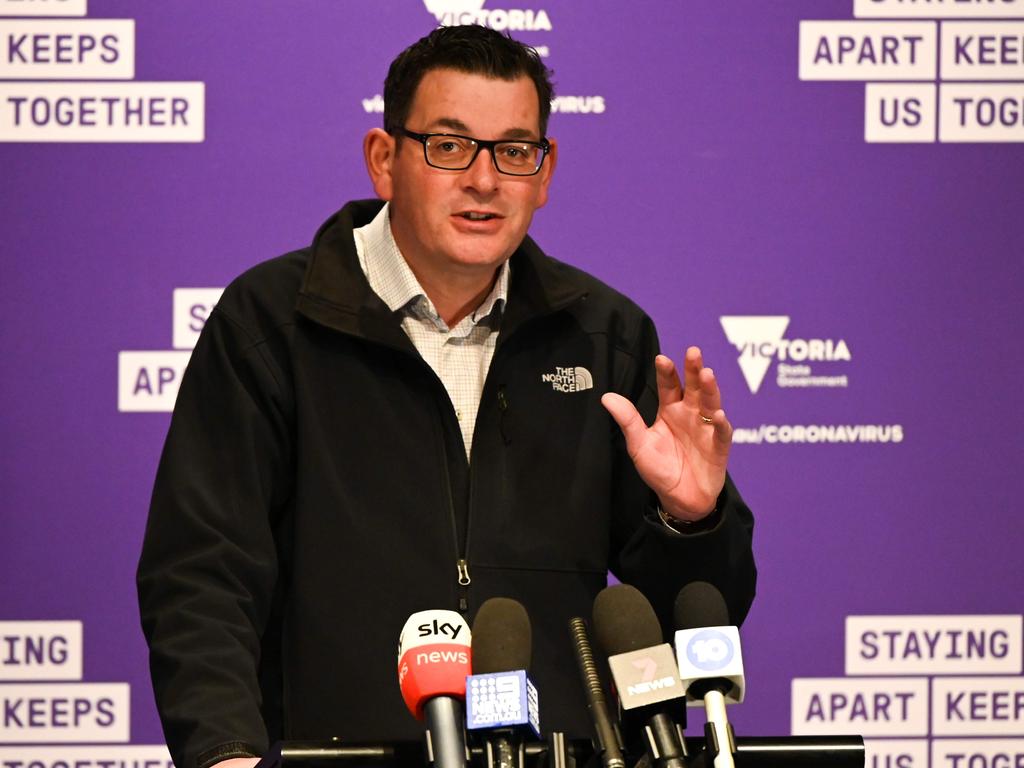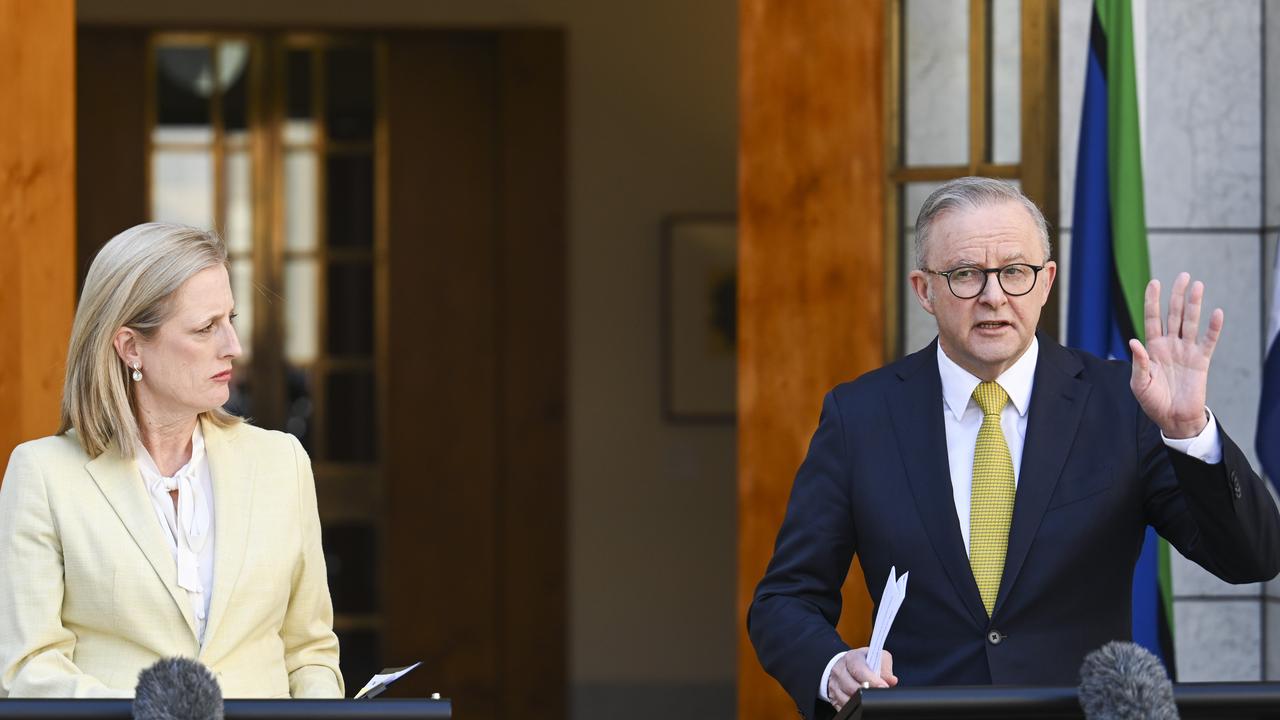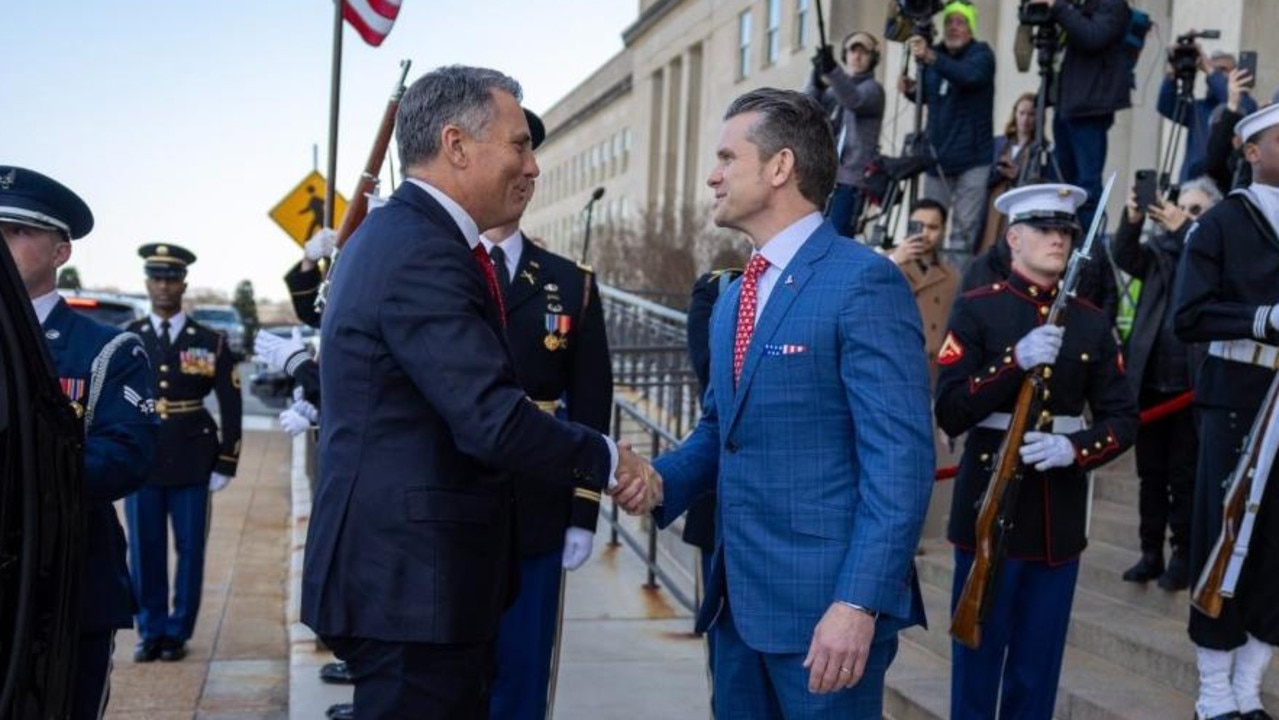NSW Premier Gladys Berejiklian says no to police pleas for tighter Covid-19 lockdown
NSW Premier Gladys Berejiklian has blocked harsher lockdown restrictions recommended by police, baulking at limiting outdoor exercise to a 5km radius.
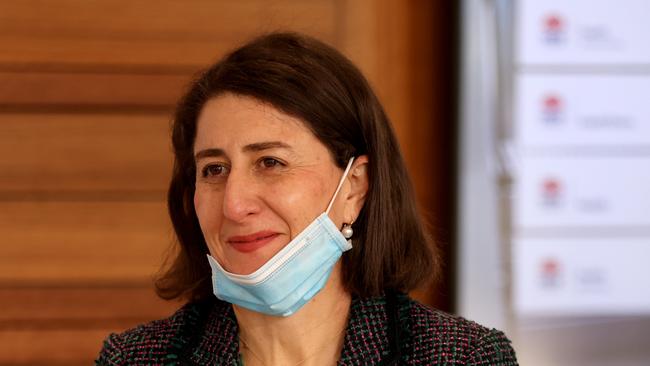
NSW Premier Gladys Berejiklian has blocked harsher lockdown restrictions recommended by police, baulking at limiting outdoor exercise to a 5km radius to prevent high numbers of people at Sydney beaches.
But the NSW government’s crisis cabinet on Friday agreed to strengthen existing measures, including closing a loophole that allowed Sydneysiders to travel between places of residence.
There will also be a new $320 payment for people living in the worst affected areas who must isolate after a Covid-19 test, similar to Victoria’s $450 allowance available to all residents.
The payments will be made to residents of nine local government areas, but could be extended if deemed necessary by health bureaucrats.
Officials said there were some doubts about the effectiveness of the Victorian payments.
With a record 390 infections reported in NSW on Friday, other premiers have flagged concerns the Berejiklian government has abandoned attempts to eradicate the coronavirus.
Queensland Premier Annastacia Palaszczuk said she was “very concerned” about the number of new infections.
“I think we would need to hear very clearly from NSW what their clear plan is for containment,” she said. “It’s absolutely imperative that NSW contains this virus.”
Western Australia will also add new requirements on NSW travellers eligible to go to the state, mandating proof of at least one vaccination against Covid-19.
Victoria recorded 15 new cases; Queensland had seven.
But Scott Morrison described Friday’s national cabinet meeting as “positive and collegiate”.
“I would certainly hope they would not be seeking to ease restrictions that could give rise to that [more cases of infection],” the Prime Minister said.
“The lockdown is lifted when the lockdown works.”
NSW Police had sought to require people using the “singles bubble” to formally register the names of their companions with the government.
The crisis cabinet agreed to implement this measure – which enables people living alone to meet a companion indoors and is distinct from an exemption allowing people to meet for exercise – but only for residents of specific areas with the highest level of Covid-19 transmission.
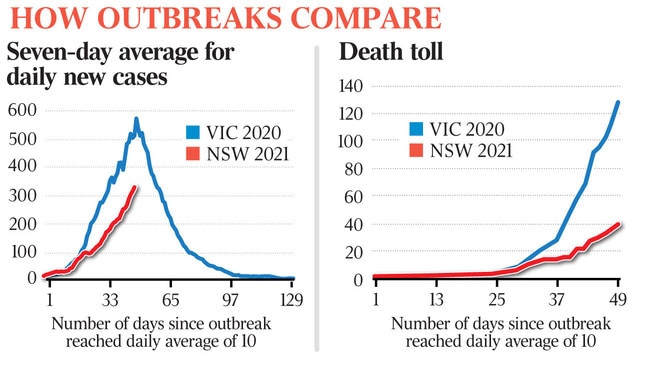
Despite presenting their proposals on Thursday, Police Minister David Elliott and Police Commissioner Mick Fuller were excluded from the crisis cabinet meeting discussing the measures on Friday.
Customer Service Minister Victor Dominello pushed back against the proposal, arguing that it was an invasive measure that should not be introduced.
The proposal sought to keep the list with Service NSW, run by Mr Dominello, but it will instead be managed through another database.
The list of names will be available to police officers conducting compliance operations.
But police officials are understood to be frustrated by a decision not to place limits on exercise to keep people within 5km of their local government area.
The proposal was made in large part to stop people from southwestern Sydney – where the virus is concentrated – travelling to less affected suburbs using the exemption.
It was also hoped the measure would stop large numbers of people gathering at Sydney’s northern and eastern beaches.
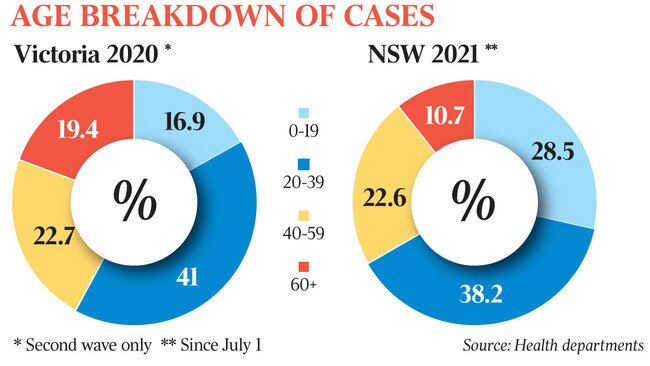
The issue of compliance and enforcement has become a nerve point in recent days as officials face rising case numbers and increases in those who are infectious while active in the community, the result of rule-breaking or a misunderstanding of public health orders.
Ms Berejiklian was on Friday evening understood to be reviewing the rule around exercise, with a view to potentially implementing the limit at a later stage.
Ms Berejiklian said on Friday the number of people deliberately breaching stay-at-home orders was small, but the consequences had proved enormous for some communities.
“For example, there was one person who knowingly did the wrong thing and has caused havoc in about seven or eight local government areas in western NSW,” she said.
“When people knowingly do the wrong thing and pretend they didn’t know, that’s not acceptable. So I’m a bit tired of hearing people saying they didn’t know what they’re supposed to do.”
Kristian Radovanovic, 19, on Friday became the second person charged with breaching health orders by travelling with his father Zoran from Rose Bay, in Sydney’s east, to Byron Bay.
Mr Radovanovic, 52, is believed to have travelled to the north-coast town to look at real estate. He has also been charged.
Under the current health orders, travelling for the purposes of searching for a new place of residence was allowed. Byron Bay has since been locked down.
For now, NSW is still tracking to ease some restrictions during September when it reaches about 50 per cent vaccination coverage, Ms Berejiklian said.
But divisions are emerging within her government as to how this plan should be executed.
Ms Berejiklian has indicated her willingness to examine an easing of restrictions for communities with higher vaccination rates, although this stance remains at odds with some senior colleagues and industry representatives.
Their proposal suggests that vaccinated people should be given access to greater freedoms regardless of where they live. ClubsNSW and the Australian Hotel Association are currently drafting plans for Commissioner Fuller to usher in a return of vaccinated patrons.
These will be discussed further in September, an official confirmed.
Of the cases announced on Friday, 101 people were known to be infectious in the community at some point, while a further 191 cases remain under investigation for their isolation status.
Officials also announced the death of a woman in her 40s from southwestern Sydney and a Newcastle man in his 90s who acquired Covid-19 following an outbreak at his retirement village.


